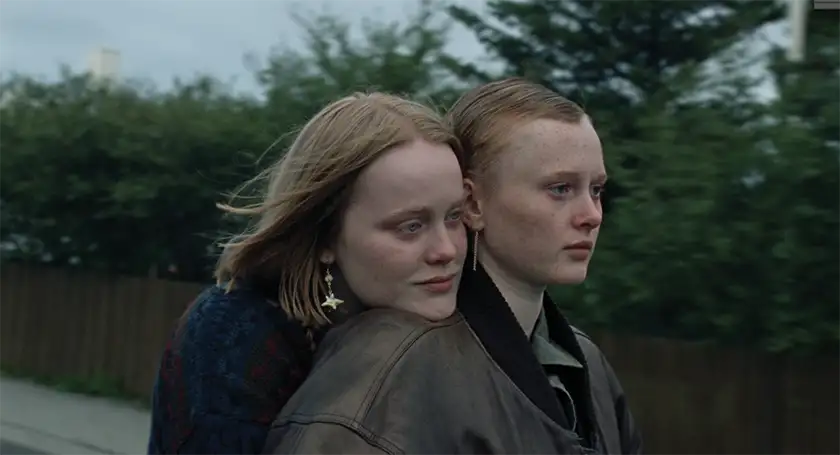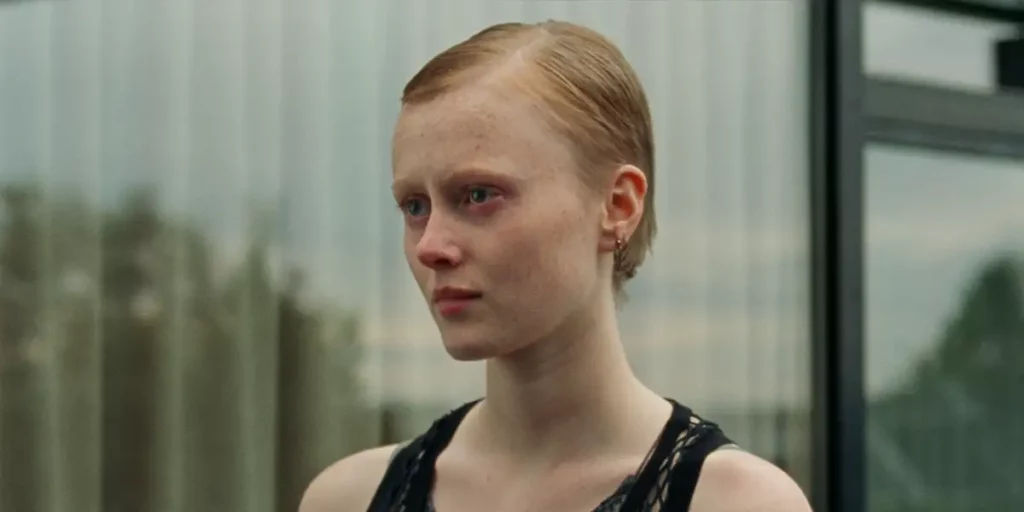Rúnar Rúnarsson’s When The Light Breaks is a visually stunning, poignant exploration of personal grief in the wake of public tragedy and the emotional weight of a secret.
Director: Rúnar Rúnarsson
Genre: Drama
Run Time: 82′
World Premiere: May 15, 2024
Release Date: TBA
Where to Watch: at tgeCannes Film Festival
Rúnar Rúnarsson’s When The Light Breaks (Ljósbrot) is the type of film that packs a surprisingly hefty emotional punch for all its low-fi sensibilities. It’s a film that ruminates on the convoluted process of grief, despite the writer-director choosing to shadow its characters over the course of just a single day. It’s not showy or flashy, instead understanding the poignancy in letting emotion be its driving force.
Una (Elín Hall) is a young art student, who awakens on a seemingly regular summer day hopeful for the future ahead of her upcoming graduation. But when a devastating accident rocks Reykjavik, Una finds her world irrevocably changed in an instant. She joins the public in mourning the victims, but must keep a much more personal grief secret from her friends.
When The Light Breaks hinges on its central performance, and Hall’s is exquisite. It’s a quiet, poignant film that places itself in the immediate aftermath of a tragedy, in that moment of conflicting shock, horror, incomprehensibility and sorrow. Una cannot fully express the depth of her emotions, buried under the weight of a secret and kept outside the immediate circle of grief, and as such is spectacularly vulnerable. Her composure is hanging on by a thread, and every aspect of Hall’s physical performance is poignantly conveying what she isn’t saying. When she inevitably buckles under the strain, she curls in on herself and hides her face from view, but the audience is able to understand her perfectly.
Thankfully, Rúnarsson’s film doesn’t utilise Una’s grief for unnecessary drama. Instead, it is much more focused on the emotional complexities of life after a death. It is almost reflective, capturing the course of the grieving experience over a single day. Rúnarsson is almost clinical in his use of dialogue, relying more on mood than exposition, and he lets Una process the situation internally, without the pressures of having to verbalise her feelings. When The Light Breaks is whittled down to its bare bones, with a run time of just 80 minutes, but it doesn’t feel lacking as a result. It’s incredibly moving, almost hauntingly so, and Rúnarsson trusts his cast – Hall, especially – to successfully capture the maelstrom of feelings it seeks to evoke.

It is also visually stunning, with Sophia Olsson’s cinematography elevating almost every single shot to enrich the minimal – but effective – narrative. As Una determinedly walks to meet and comfort her friends, she passes under a row of Icelandic flags flying at half-mast. It’s an outwardly symbolic gesture of the public’s devastation whilst she is forced to keep hers hidden, and an incredibly effective visualisation of the dichotomy of individual grief in the wake of mass tragedy. And then there’s the instance in which Una faces the person allowed to grieve where she isn’t, Katla Njálsdóttir’s Klara. Olsson and Rúnarsson place the two women so that they are facing each other, yet keep them separated by a window. Their reflections overlap until it is impossible to tell them apart, and it’s such a vivid encapsulation of their connection in that moment, even as they remain silent.
When The Light Breaks is a film that shows the process of grief so effectively that it doesn’t need to tell its audience anything else. It’s quiet and reflective for the majority of its runtime, but is never lacking in emotional weight. Rúnarsson’s film is a poignant encapsulation of personal grief in a situation wherein it is not necessarily appropriate, but never loses sight of the fact that that grief is still valid. It features an incredibly vulnerable central performance, showcases the raw beauty of both Iceland and human emotion, and trusts its audience to be willing to connect to its poignant message when all the frills have been stripped away.
Rúnar Rúnarsson’s When The Light Breaks premiered at the Cannes Film Festival on May 15, 2024, as the opening film of Un Certain Regard. Read our review of Come Closer!

